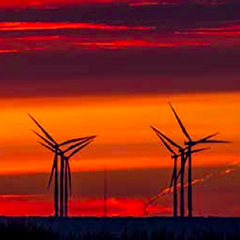The Stern Review on the Economics of Climate Change was published in 2006 by Nicholas Stern, and swiftly became a game-changer for the wind industry. Will the economist’s latest report – published by The Global Commission on the Economy and Climate just a few days ago – have the same impact? We pick over the key recommendations.
The Commission has highlighted 10 transformative areas for action which can deliver both significant economic benefits and reduce the risk of dangerous climate change. These actions offer the prospect of better economic growth that yields multiple benefits, including more energy, water and food security; improved rural livelihoods; better protection of the natural world; less traffic congestion; improved air quality and public health; as well as lower greenhouse gas emissions and more climate-resilient growth.
A key insight of the New Climate Economy study is that these actions make good economic sense, even before their climate benefits are considered. Countries can gain a net benefit from implementing the proposed actions, when these full advantages are considered. Implementing these actions can achieve at least half of the cuts in global greenhouse gas emissions required by 2030 to stay on a 2°C pathway, and potentially up to 90%, if they are implemented in the right way.
Taken together, the proposed actions would send a strong, clear signal that the world economy is poised to follow a low-carbon direction. They would reduce uncertainty for investors, businesses, farmers and consumers, and so reduce the transitional costs of change. The more countries, cities and businesses that move in this direction, the easier it is for everyone to join in. But the right policy signals and actions are needed urgently. If this does not happen now, there is a serious risk that we will lock in a growth path with significant risks of climate change and weak economic performance. Delaying action will also increase the costs of changing course later on.
The world can only achieve such ambitious, deliberate change with leadership and collaboration. It requires the engagement of economic decision-makers at every level. Countries have different abilities to realise the opportunities highlighted here. Developed countries must show real leadership: both politically, demonstrated through their own domestic ambition, and by supporting the development and dissemination of low-carbon technologies and know-how, providing finance, and strengthening the financial institutions needed to bring down the cost of low-carbon investments.























